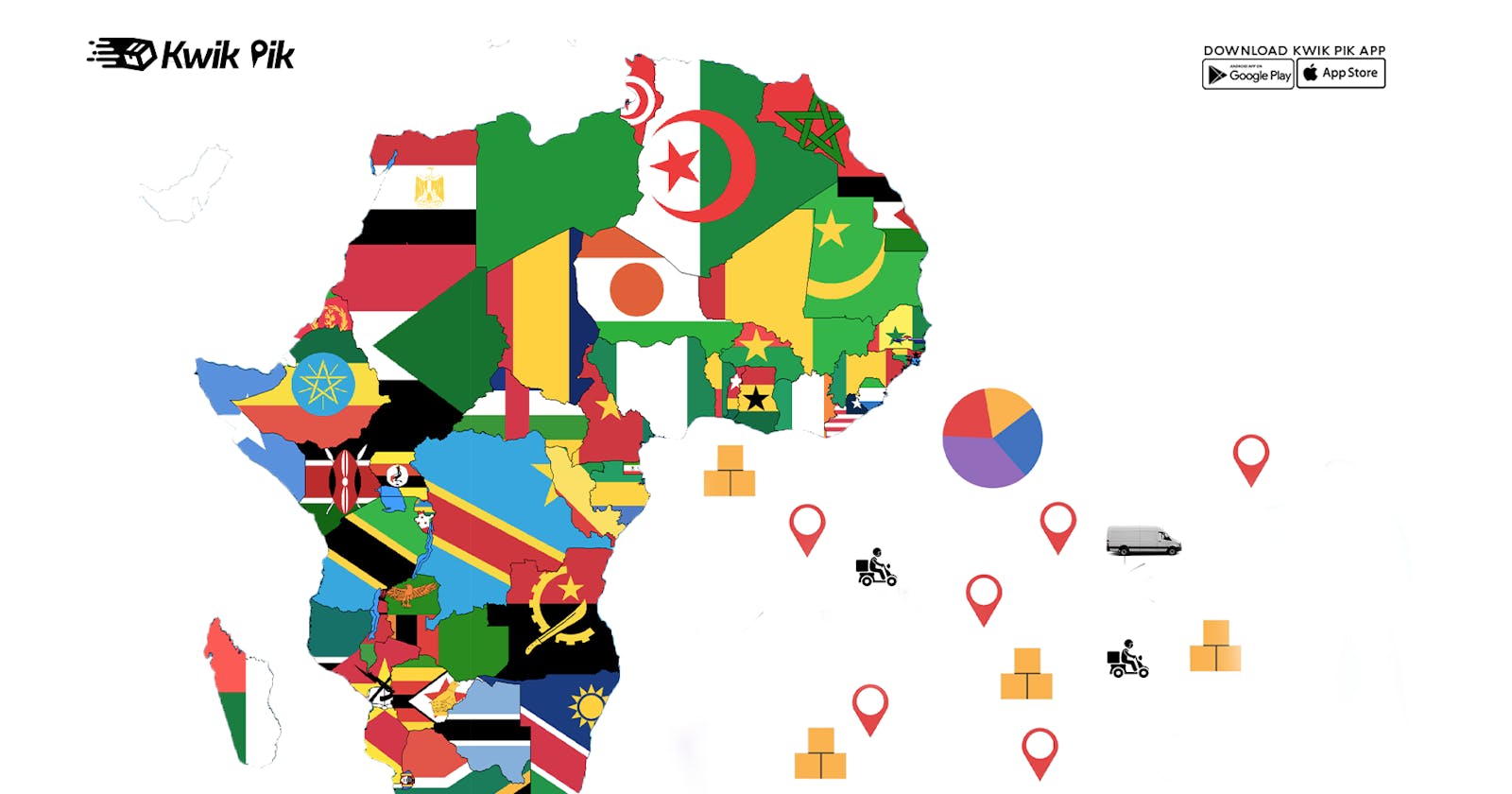Supply Chain Management & Logistics in Africa
4 min read

The supply chain is like nature, it is all around us. When it works well, we barely notice it; when it doesn't, it's all we can notice.
Although Africa is a continent brimming with potential- a burgeoning population and natural resources- poised for economic takeoff, a crucial challenge threatens to stall this progress: inefficient supply chain management and logistics.
In this article, we’ll discuss supply chain management and logistics in Africa, highlighting the challenges, possible solutions and Kwik Pik’s role in driving the desired change.
Understanding the Fundamentals: Supply Chain Management and Logistics
It’s common to see many use both supply chain management and logistics interchangeably, therefore leading to the misconception that both mean the same thing.
But they are not.
Supply Chain Management (SCM) is the orchestration of all activities involved in moving goods or services from conception to consumption.
It encompasses 5 key components:
Procurement: Sourcing raw materials and supplies efficiently.
Inventory Management: Balancing stock levels to minimize costs and ensure availability.
Production: Streamlining manufacturing processes for optimal output.
Distribution: Delivering products to customers quickly and cost-effectively.
Returns Management: Handling returns efficiently and sustainably.
4 & 5 speak to the role of logistics in supply chain management.
Supply chain management also extends to the activities around global trade, such as the management of global suppliers and multinational production processes.
Logistics, on the other hand, is a subset of Supply Chain Management, and it focuses on the physical movement and storage of goods. It includes 4 key elements:
Transportation: Choosing the right mode (road, air, rail, sea) for cost, speed, and reliability.
Warehousing: Strategically locating and managing storage facilities.
Inventory Management: Optimizing stock levels within warehouses.
Order Fulfillment: Efficiently picking, packing, and delivering orders.
This is where Kwik Pik sufficiently comes in, offering individuals and businesses efficient delivery-as-a-service. You can sign up for our services.
Why are Supply Chain Management and Logistics Important in Africa?
Logistics costs in Africa are the highest globally, consuming an average of 13% of GDP compared to the global average of 7%. This translates to billions lost in potential productivity and competitiveness.
Delays and disruptions are commonplace, leading to spoilage, lost sales, and frustrated customers. The World Bank estimates that agricultural products in Africa lose up to 40% of their value due to poor logistics.
Trending industries like E-commerce, agri-tech, Health tech and fintech also are limited in reach due to the inefficient nature of logistics. This affects how items are delivered to final consumers in inaccessible areas.
And that’s not all.
The limited access to essential goods in rural areas hinders development and exacerbates poverty. Inefficient supply chains leave many communities struggling to access medicine, education, and necessities.
The Call to Action
Transforming Africa's supply chain requires a collaborative effort. Governments, businesses, and international organizations must work together to:
Prioritize infrastructure development: Investing in roads, railways, and digital infrastructure is key to creating a seamless network for moving goods.
Harmonize regulations: Streamlining regulations across borders will reduce delays and make trade more efficient. This is happening with the African Continental Free Trade Area (AfCFTA).
Foster innovation: Supporting startups and encouraging technology adoption will drive further improvements in logistics efficiency.
Leveraging Tech: DaaS companies can also play a role by taking advantage of new technologies like blockchain, IoT, etc to make logistics efficient.
Trends Shaping The Future
Digitalization: New technologies like IoT, AI, and blockchain are now being embraced in the logistics sector to enhance transparency, efficiency, and security. Kwik Pik is an example; leveraging the Hedera blockchain to create a sustainable delivery service experience.
Automation and Robotics: The ability to automate mundane tasks for accuracy, speed and cost reduction is also changing the narrative of delivery-as-a-service companies. At Kwik Pik, for example, every delivery fulfilled is recorded immutably on the blockchain for everyone to verify. This would have required a lot of effort to record accurately if done manually.
Cybersecurity: An increase in digitalization also increases the risk of cyber crimes. This has led to the adoption of safety measures to protect users and their data. Some of the measures taken at Kwik Pik include route optimization, real-time tracking, and building on Hedera DLT.
Benefits of Efficient Supply Chain Management And Logistics in Africa
Cost Reduction: Streamlining processes minimizes waste and optimizes costs.
Improved Efficiency: Optimized flows prevent bottlenecks and delays.
Enhanced Visibility: Real-time tracking ensures transparency and control.
Increased Customer Satisfaction: Faster deliveries and fewer errors improve customer experience.
Conclusion
Kwik Pik identifies the need for sustainable and efficient supply chain management and logistics in Africa and plays an active role in making it a reality. Sign up on our app today.
Other relevant reads:
How Blockchain is Revolutionizing Logistics and Lastmile Delivery Services
Top Logistics and Delivery Companies in Africa and the Middle East
Download our app| Become a rider| Become a business partner| Visit our social channels